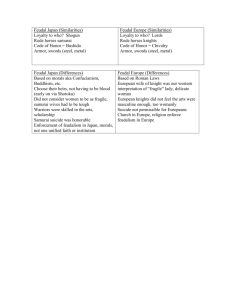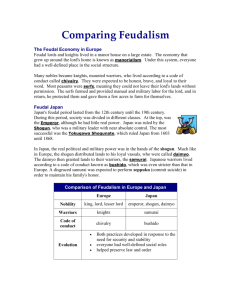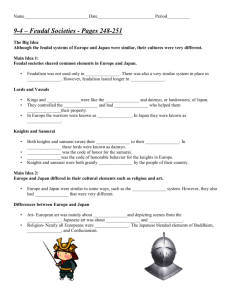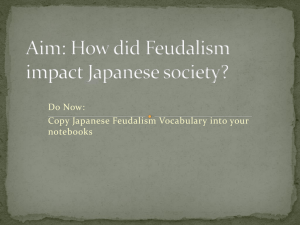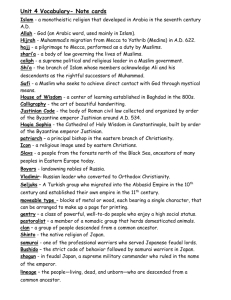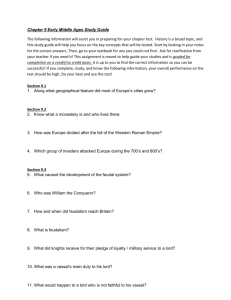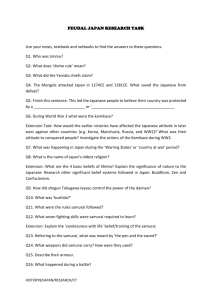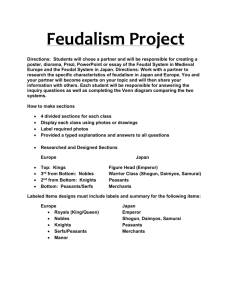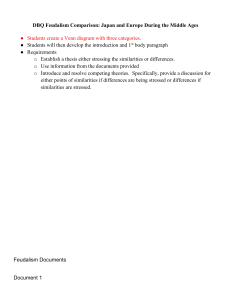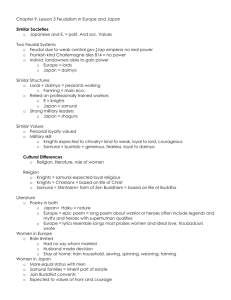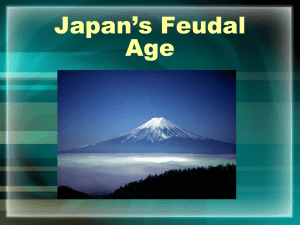Vocabulary Answers - Hamburg Central School District
advertisement
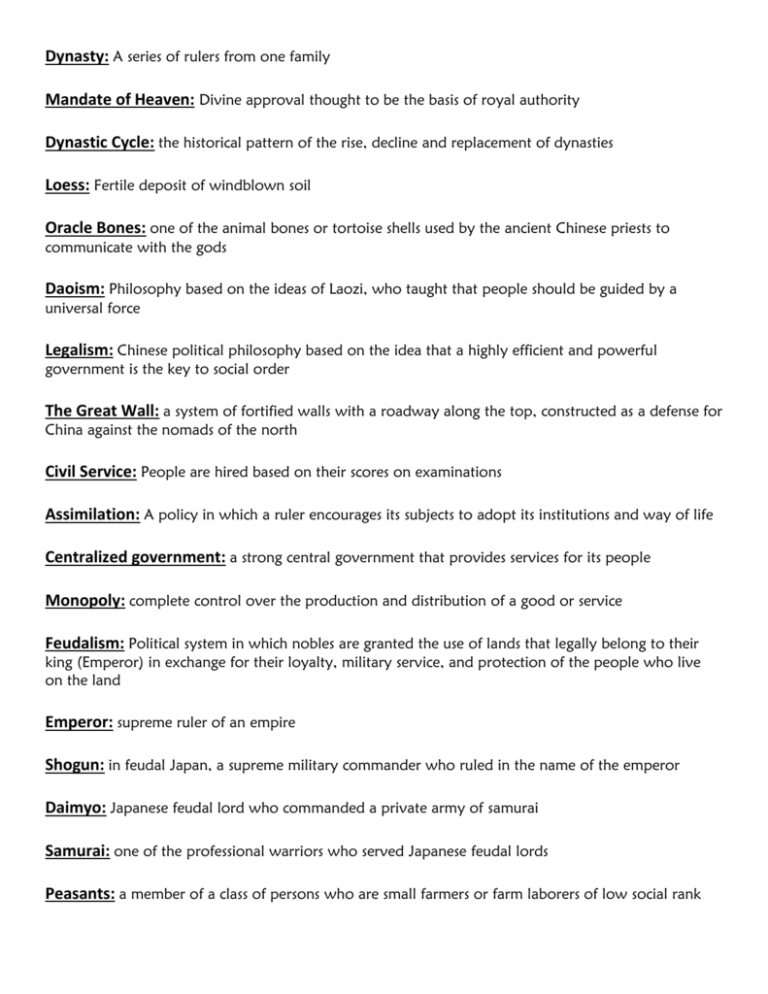
Dynasty: A series of rulers from one family Mandate of Heaven: Divine approval thought to be the basis of royal authority Dynastic Cycle: the historical pattern of the rise, decline and replacement of dynasties Loess: Fertile deposit of windblown soil Oracle Bones: one of the animal bones or tortoise shells used by the ancient Chinese priests to communicate with the gods Daoism: Philosophy based on the ideas of Laozi, who taught that people should be guided by a universal force Legalism: Chinese political philosophy based on the idea that a highly efficient and powerful government is the key to social order The Great Wall: a system of fortified walls with a roadway along the top, constructed as a defense for China against the nomads of the north Civil Service: People are hired based on their scores on examinations Assimilation: A policy in which a ruler encourages its subjects to adopt its institutions and way of life Centralized government: a strong central government that provides services for its people Monopoly: complete control over the production and distribution of a good or service Feudalism: Political system in which nobles are granted the use of lands that legally belong to their king (Emperor) in exchange for their loyalty, military service, and protection of the people who live on the land Emperor: supreme ruler of an empire Shogun: in feudal Japan, a supreme military commander who ruled in the name of the emperor Daimyo: Japanese feudal lord who commanded a private army of samurai Samurai: one of the professional warriors who served Japanese feudal lords Peasants: a member of a class of persons who are small farmers or farm laborers of low social rank Bushido: Strict code of behavior followed by Samurai warriors in Japan Seclusion: being isolated from other cultures due to geography Silk Road: system of ancient caravan routes across Central Asia, along which traders carried silk and other traded goods
